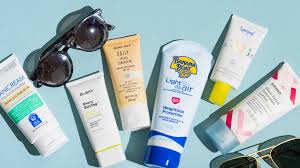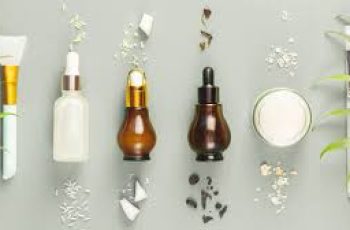
Protect Your Skin with These Top Dermatologist-Recommended Mineral Sunscreens
You’ve heard it time and time again: sunscreen is a must for healthy skin. But have you ever wondered how sunscreen actually works to protect your skin?
Dermatologists stress the importance of daily sunscreen, but understanding the science behind it can help you choose the best one for your skin.
How Sunscreen Protects Your Skin
There are two main types of sunscreen: chemical and mineral (also called physical).
Chemical sunscreens work by absorbing UV rays before they penetrate the skin. The ingredients in these formulas convert UV light into heat, which is then released from the skin.
“Chemical filters absorb UV rays and prevent them from penetrating the skin,” explains Dr. Joshua Zeichner, board-certified dermatologist and cosmetic research director at Mount Sinai Hospital in NYC.
Mineral sunscreens, on the other hand, use inorganic compounds like zinc oxide or titanium dioxide to physically block UV rays from reaching your skin.
These ingredients sit on top of the skin and reflect UV radiation away like a mirror.
Is Mineral Sunscreen Better?
Mineral sunscreens have a reputation for being thick and chalky. But modern formulas are more elegant and sheer—even on darker skin tones.
Dr. Angela Casey, board-certified dermatologist and skin cancer expert, says mineral sunscreens are often better for sensitive skin. They are less likely to cause irritation and allergic reactions.
Both chemical and mineral sunscreens are approved by the FDA. However, the FDA has recently called for more safety studies on chemical sunscreen ingredients, especially regarding long-term absorption into the body.
Mineral sunscreens, in contrast, are not absorbed in the same way and have a long-standing record of safety.
Why Choose a Mineral Sunscreen?
Great for sensitive skin, Safe for kids and babies, Non-irritating and non-comedogenic, Effective immediately after application, No systemic absorption concerns
If you’re looking for a gentle, effective sunscreen, mineral is often the best option.
To help you choose, we’ve curated a list of top-rated dermatologist-approved mineral sunscreens for every skin type and concern.
Best Dermatologist-Recommended Mineral Sunscreens
1. La Roche-Posay Anthelios Mineral Ultra-Light SPF 50
This sunscreen is a favorite among dermatologists and beauty editors alike. It’s lightweight, oil-free, and ideal for daily use on sensitive or acne-prone skin.
Contains zinc oxide, Non-comedogenic and fragrance-free, Water-resistant (40 minutes), Blends well with most skin tones
Emily Goldman, Editor-in-Chief of Prevention magazine, says:
“My skin feels hydrated and protected—even in winter. It’s effective year-round.”
2. CeraVe 100% Mineral Sunscreen SPF 50
This gentle sunscreen is enriched with ceramides and niacinamide, which help restore the skin barrier and calm redness.
Oil-free and lightweight
Ideal for sensitive skin and rosacea-prone skin
Affordable and easily available
Developed with dermatologists
Dr. Meghan Feely, a dermatologist in NY and NJ, endorses it for everyday protection.
Goldman adds: “It’s super gentle and powerful. I wear this daily.”
3. Eucerin Sensitive Mineral Sunscreen Lotion SPF 50
A great face and body sunscreen for anyone with sensitive or reactive skin.
Only mineral filters
Spreads easily over large areas
Leaves no white residue
Water-resistant for 80 minutes
“This sunscreen is light, absorbs fast, and is ideal for daily use,” says Dr. Illustrator, a skin care expert.
4. Coppertone Pure & Simple Sunscreen Lotion SPF 50
Looking for something affordable and easy to use by the pool? Coppertone delivers.
High SPF and water-resistant
Contains zinc oxide
Includes botanical extracts like tea and seaweed
Great for face and body
Perfect for beach days and families looking for budget-friendly sun protection.
5. Blue Lizard Australian Sunscreen SPF 30+ (Sensitive)
This Australian classic is known for safe, sensitive formulas and smart packaging.
Broad-spectrum SPF 30
Bottle changes color when exposed to UV light
Contains zinc oxide and titanium dioxide
Non-irritating and great for kids
Dr. Marisa Garshick notes: “The particles are too large to penetrate the skin, so irritation is unlikely.”
6. EltaMD UV Elements Tinted Facial Sunscreen SPF 44
Need a tinted sunscreen that doubles as a foundation? This one checks all the boxes.
Universal tint suits most skin tones
Hyaluronic acid for hydration
Antioxidants to fight free radicals
Ideal for daily wear and sensitive skin
Dr. Kathy says, “It provides broad protection and hydrates while evening out skin tone.”
Goldman adds: “I use this for weddings or outdoor events—it gives me coverage and protection.”
7. Neutrogena Sheer Zinc Oxide Dry-Touch SPF 50
This sheer mineral sunscreen features Dry Touch Technology to reduce shine and prevent greasy skin.
Great for oily and acne-prone skin
Waterproof for 80 minutes
Fragrance-free and non-comedogenic
Trusted by generations
Goldman shares: “I’ve used this since childhood. It’s my go-to for beach days and holds up in the ocean.”
8. Dr. Jart+ Every Sun Day Mineral Sunscreen SPF 50+
Want something from a premium Korean beauty brand? Dr. Jart+ delivers.
Lightweight and matte finish
Works well for sensitive and combination skin
No sticky or greasy feel
No white cast on medium-to-deep skin tones
One Sephora reviewer raved: “I have light brown skin, and it blends in perfectly. No white cast. It feels like a second skin.”
9. ISDIN Eryfotona Actinica Ultra-Light Emulsion SPF 50+
A favorite of dermatologists for a reason. This zinc oxide-based sunscreen protects and repairs.
Ultra-light texture
No white residue
Contains DNA repair enzymes and vitamin E
Suitable for both men and women
Dr. Shari Marchbein calls it: “A fantastic physical sunscreen that also protects skin on a cellular level.”
How to Choose the Best Mineral Sunscreen
Not all mineral sunscreens are the same. Consider the following when making your pick:
Skin type: Choose oil-free if you’re acne-prone, or hydrating if you’re dry.
SPF level: Dermatologists recommend SPF 30 or higher.
Tinted or untinted: Tinted formulas help blend on deeper skin tones.
Water resistance: Ideal if you’ll be swimming or sweating.
Ingredients: Look for zinc oxide and/or titanium dioxide for physical UV protection.
If you have sensitive skin, always do a patch test before applying new products to your face.
Final Tips for Safe Sun Protection
Reapply sunscreen every 2 hours, or immediately after swimming or sweating.
Use a shot glass amount (about 1 ounce) for full body coverage.
Wear protective clothing and hats for added protection.
Use SPF even on cloudy days or indoors, as UVA rays can penetrate windows.
Avoid direct sun during peak hours (10 AM – 4 PM) whenever possible.


